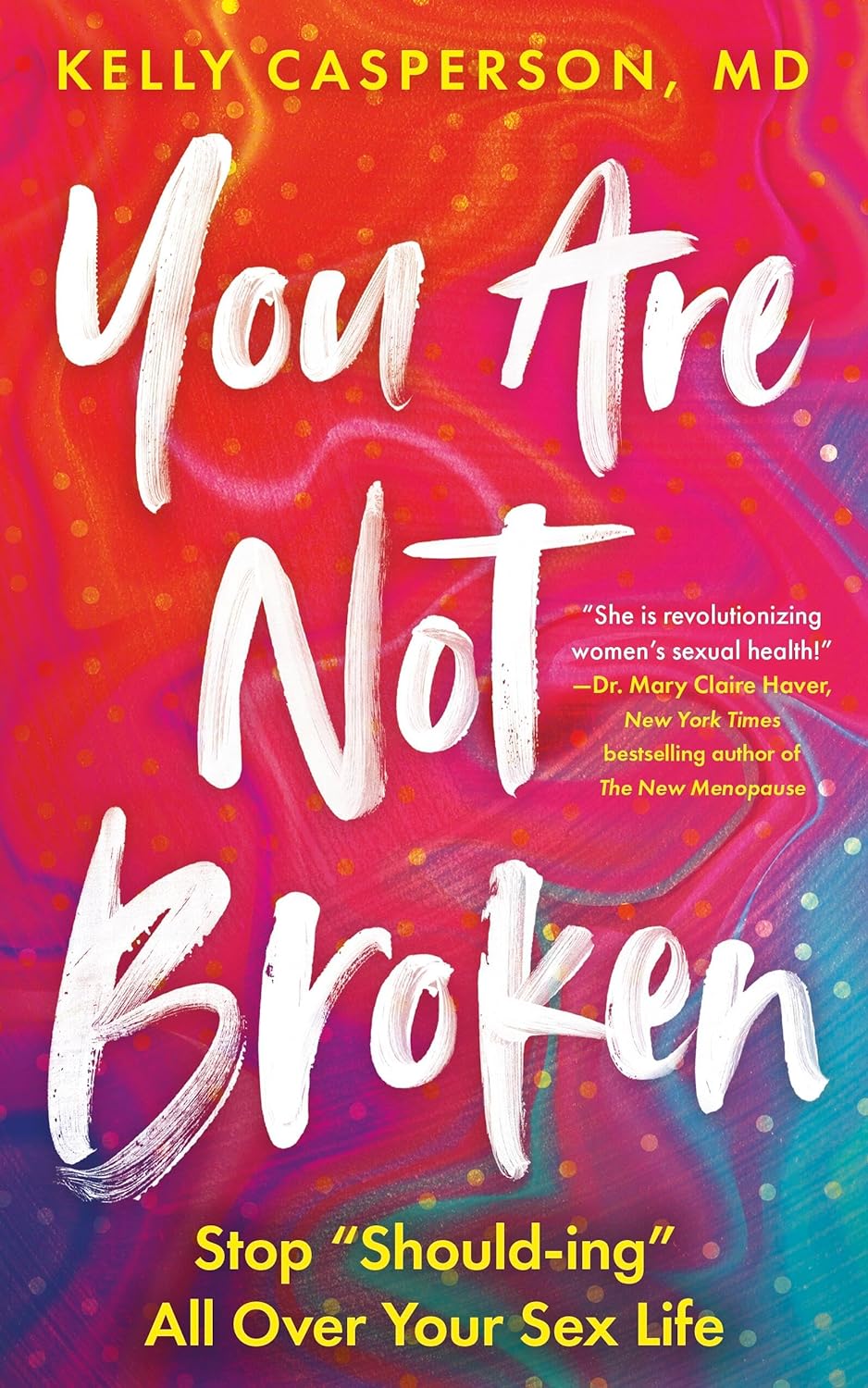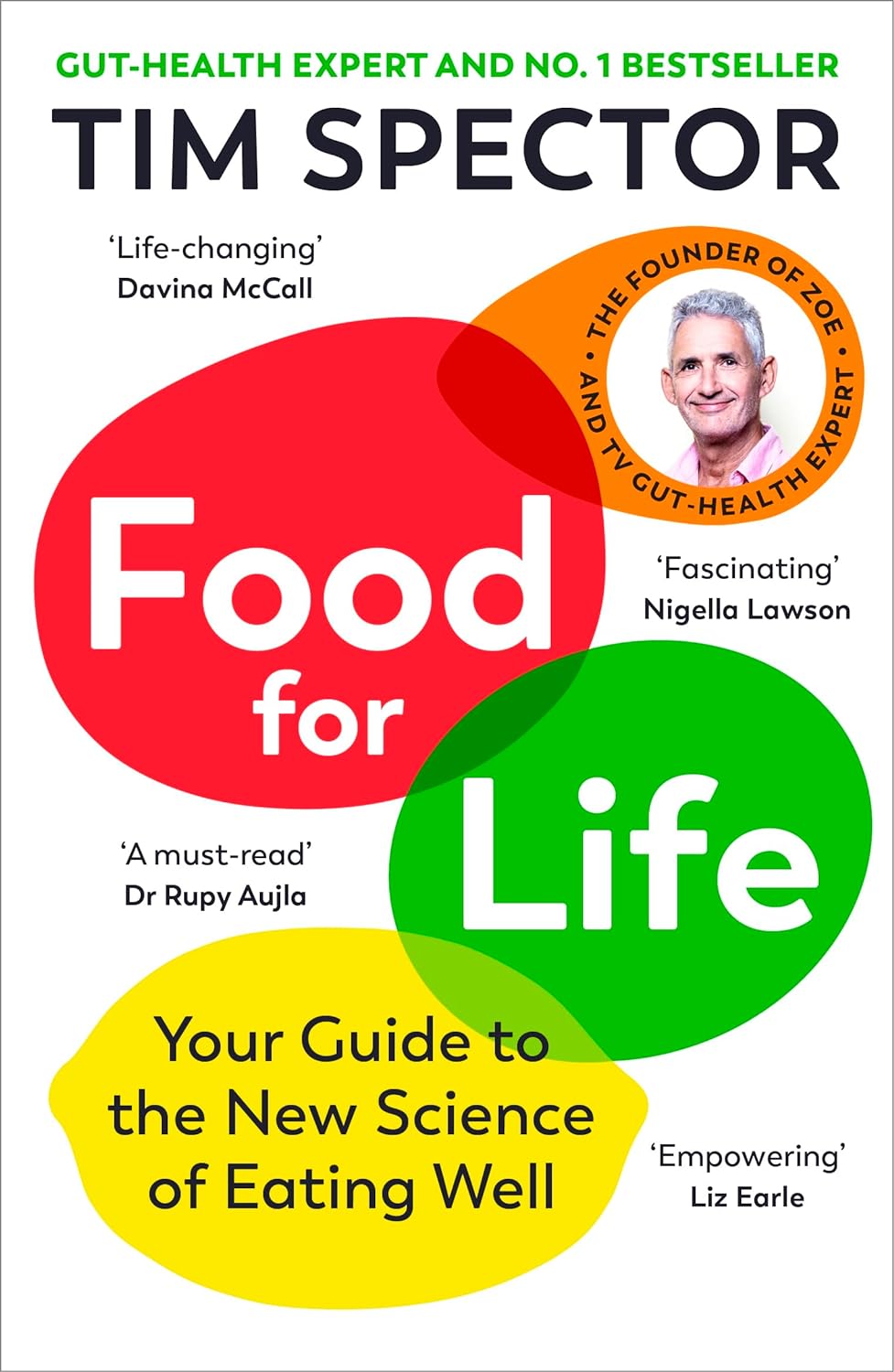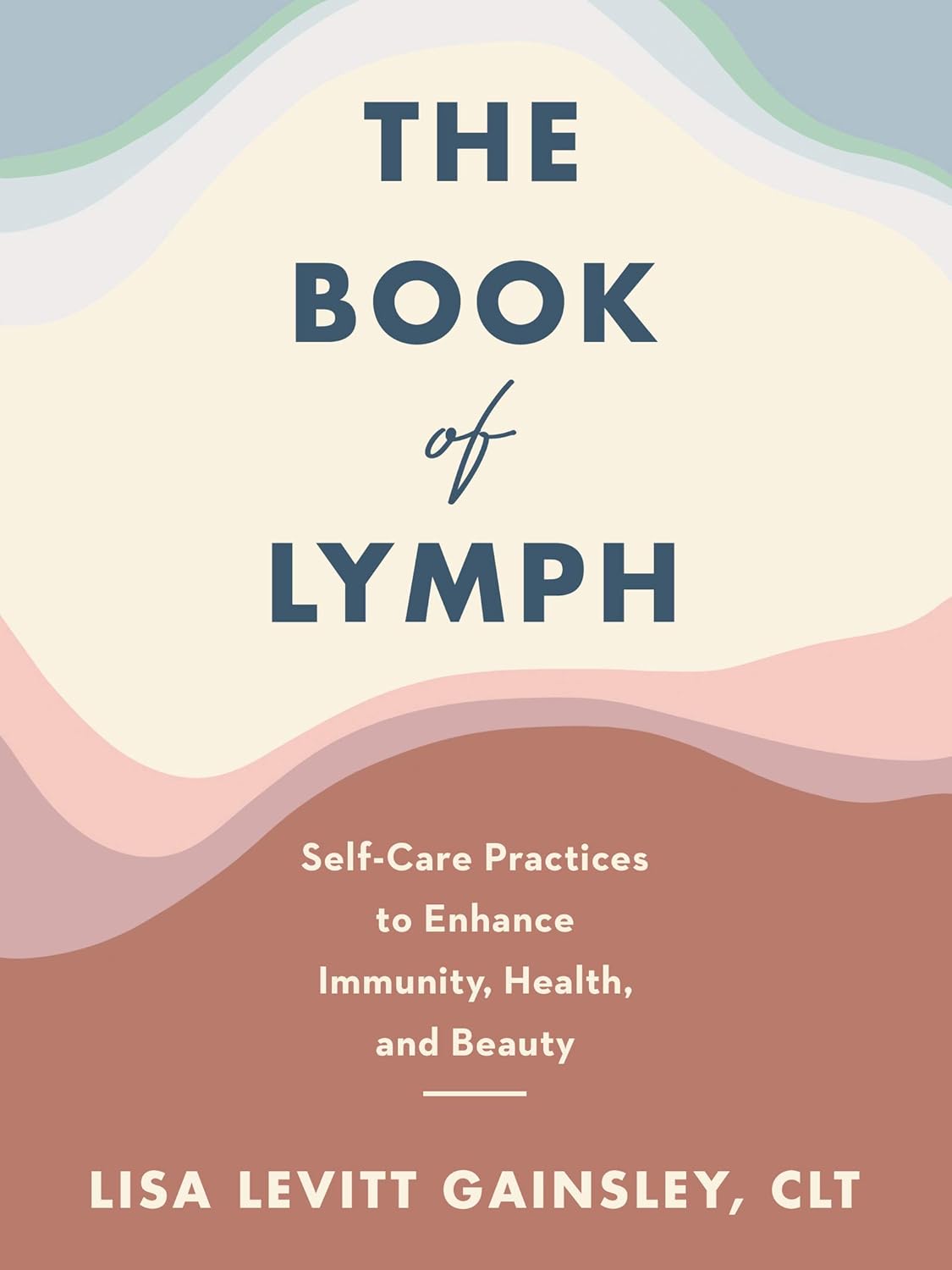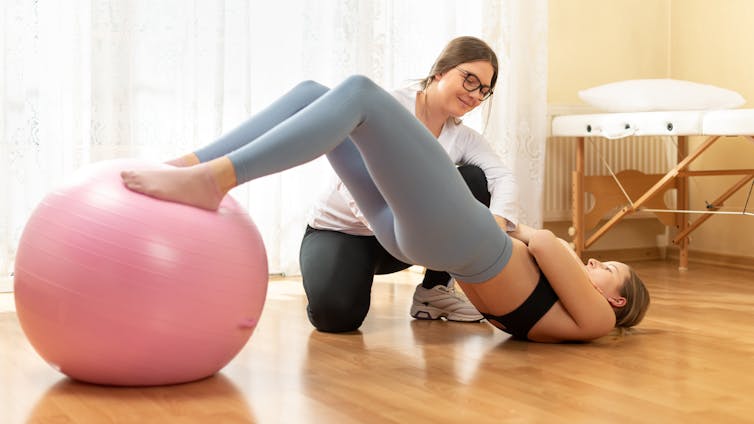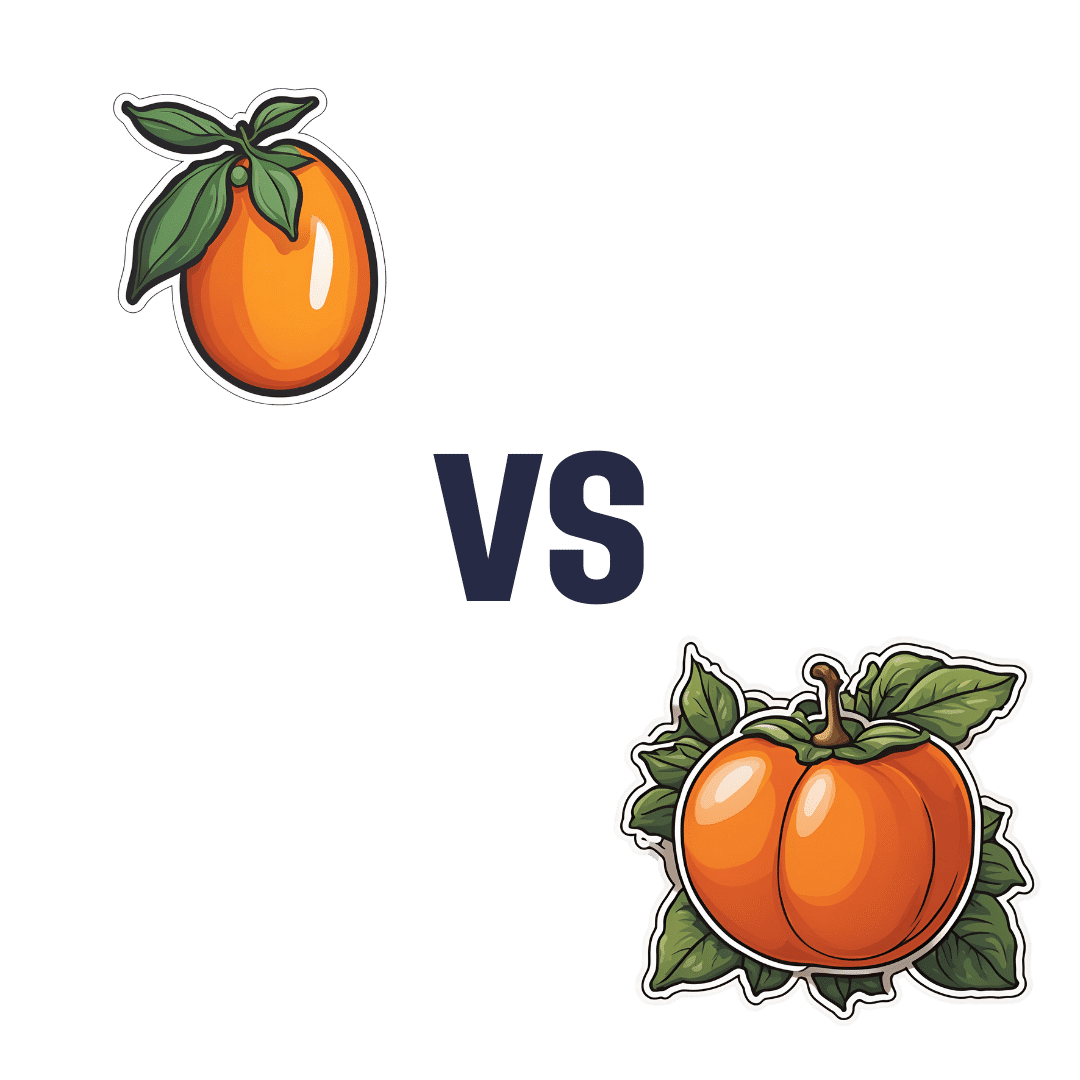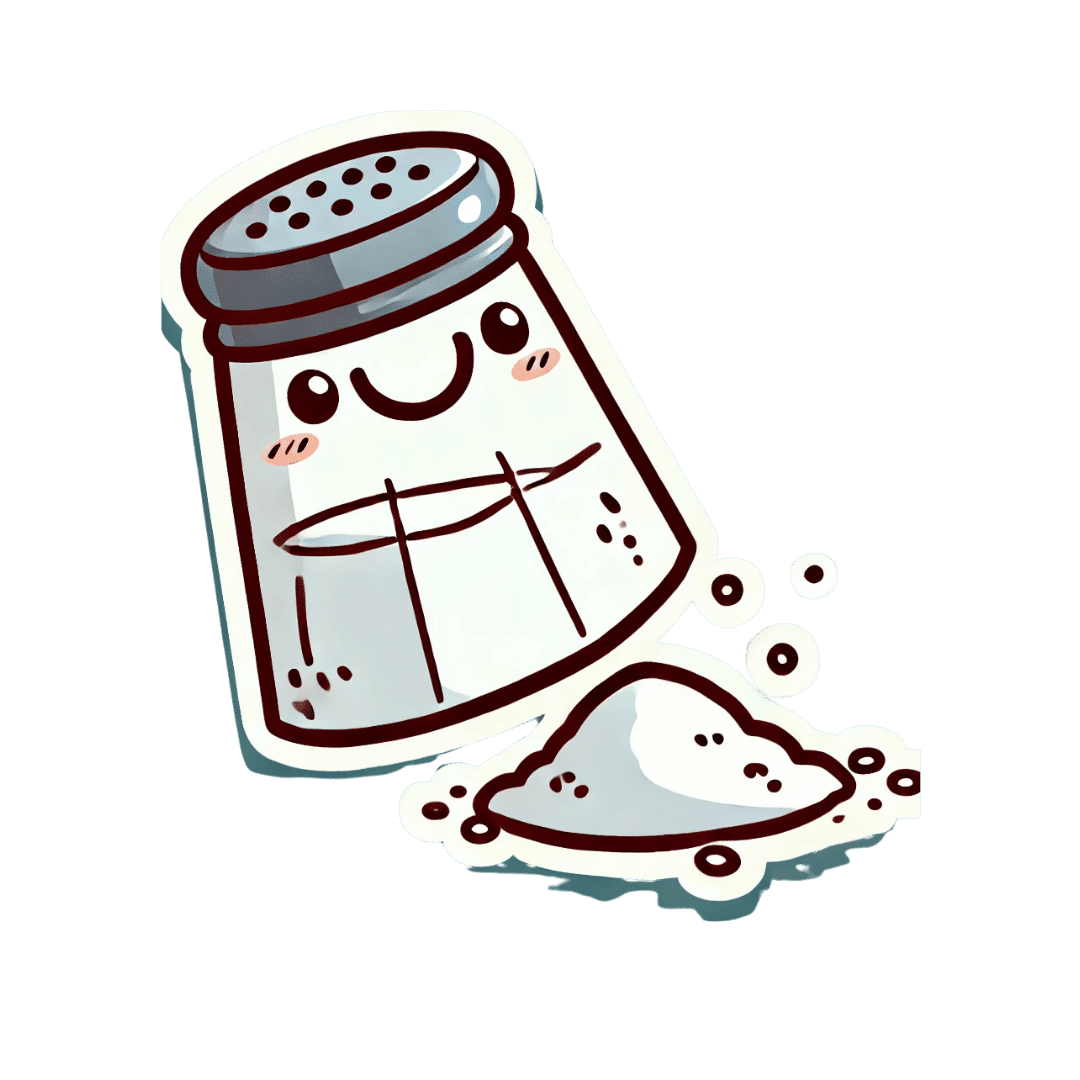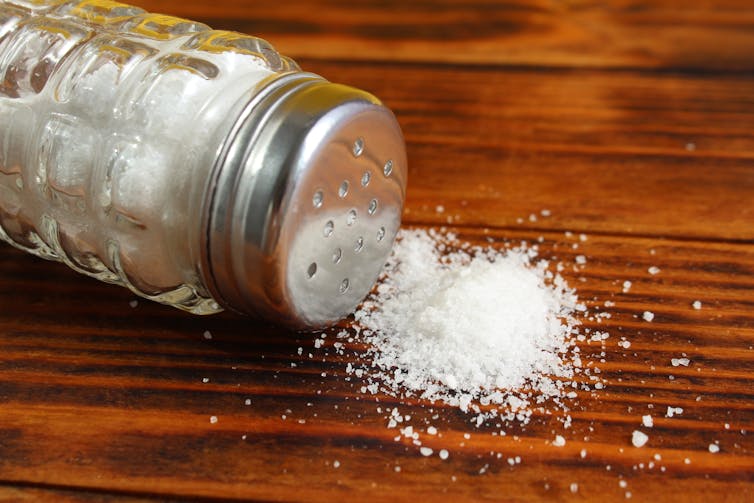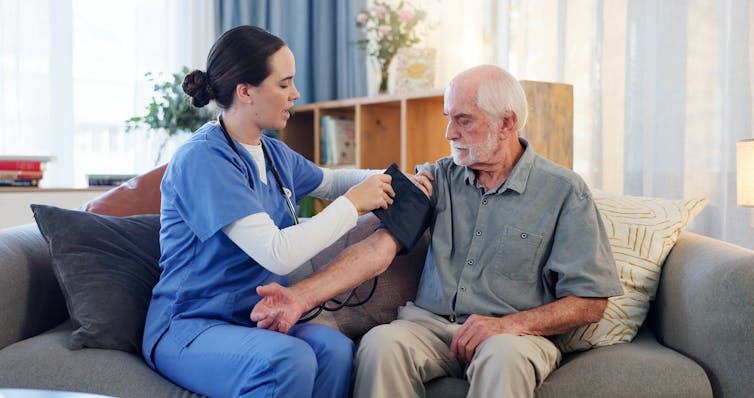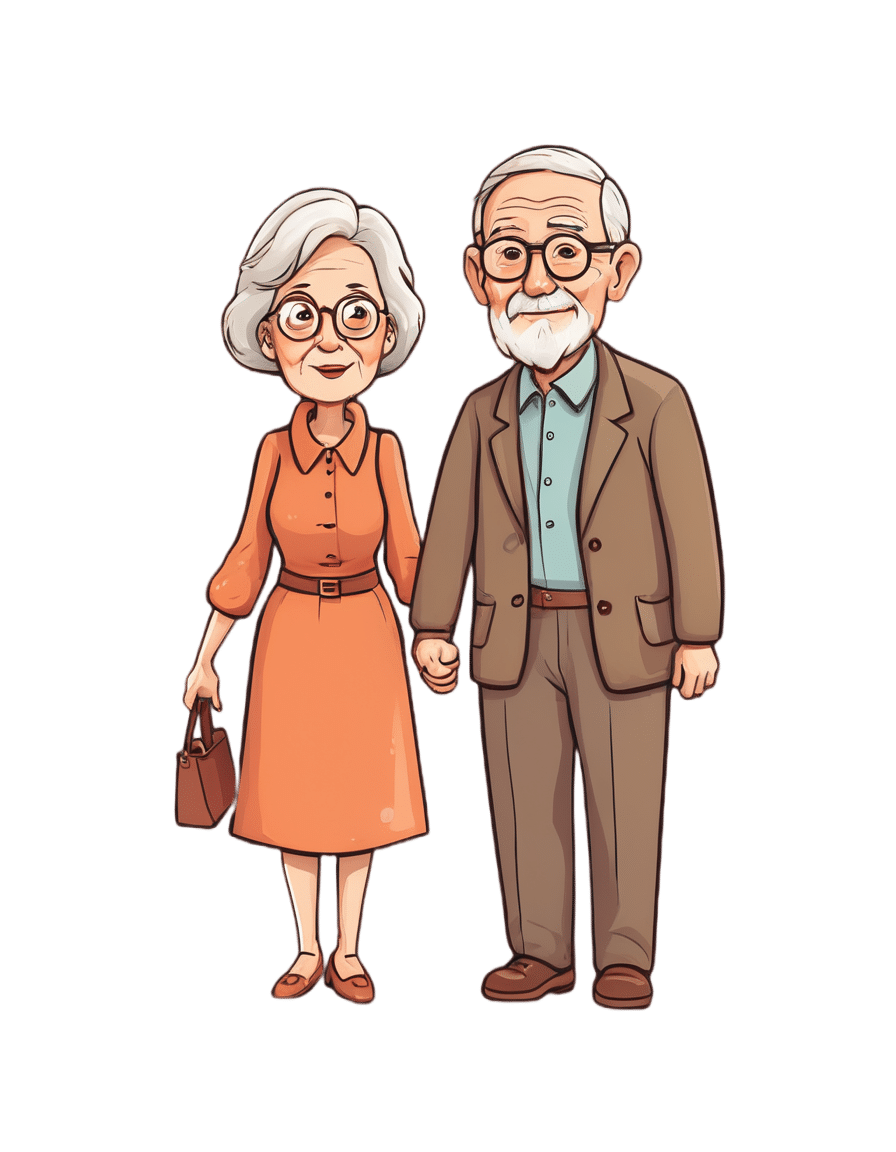
How do I handle it if my parent is refusing aged care? 4 things to consider
10almonds is reader-supported. We may, at no cost to you, receive a portion of sales if you purchase a product through a link in this article.
It’s a shock when we realise our parents aren’t managing well at home.
Perhaps the house and garden are looking more chaotic, and Mum or Dad are relying more on snacks than nutritious meals. Maybe their grooming or hygiene has declined markedly, they are socially isolated or not doing the things they used to enjoy. They may be losing weight, have had a fall, aren’t managing their medications correctly, and are at risk of getting scammed.
You’re worried and you want them to be safe and healthy. You’ve tried to talk to them about aged care but been met with swift refusal and an indignant declaration “I don’t need help – everything is fine!” Now what?
Here are four things to consider.
1. Start with more help at home
Getting help and support at home can help keep Mum or Dad well and comfortable without them needing to move.
Consider drawing up a roster of family and friends visiting to help with shopping, cleaning and outings. You can also use home aged care services – or a combination of both.
Government subsidised home care services provide from one to 13 hours of care a week. You can get more help if you are a veteran or are able to pay privately. You can take advantage of things like rehabilitation, fall risk-reduction programs, personal alarms, stove automatic switch-offs and other technology aimed at increasing safety.
Call My Aged Care to discuss your options.
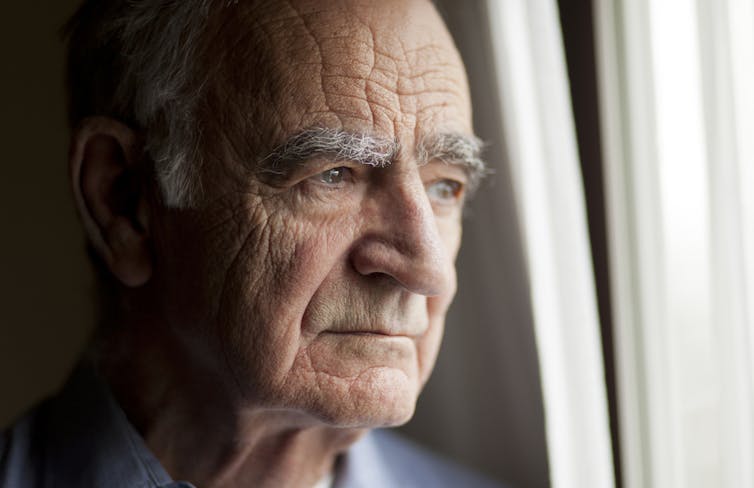
Nadino/Shutterstock
2. Be prepared for multiple conversations
Getting Mum or Dad to accept paid help can be tricky. Many families often have multiple conversations around aged care before a decision is made.
Ideally, the older person feels supported rather than attacked during these conversations.
Some families have a meeting, so everyone is coming together to help. In other families, certain family members or friends might be better placed to have these conversations – perhaps the daughter with the health background, or the auntie or GP who Mum trusts more to provide good advice.
Mum or Dad’s main emotional support person should try to maintain their relationship. It’s OK to get someone else (like the GP, the hospital or an adult child) to play “bad cop”, while a different person (such as the older person’s spouse, or a different adult child) plays “good cop”.
3. Understand the options when help at home isn’t enough
If you have maximised home support and it’s not enough, or if the hospital won’t discharge Mum or Dad without extensive supports, then you may be considering a nursing home (also known as residential aged care in Australia).
Every person has a legal right to choose where we live (unless they have lost capacity to make that decision).
This means families can’t put Mum or Dad into residential aged care against their will. Every person also has the right to choose to take risks. People can choose to continue to live at home, even if it means they might not get help immediately if they fall, or eat poorly. We should respect Mum or Dad’s decisions, even if we disagree with them. Researchers call this “dignity of risk”.
It’s important to understand Mum or Dad’s point of view. Listen to them. Try to figure out what they are feeling, and what they are worried might happen (which might not be rational).
Try to understand what’s really important to their quality of life. Is it the dog, having privacy in their safe space, seeing grandchildren and friends, or something else?
Older people are often understandably concerned about losing independence, losing control, and having strangers in their personal space.
Sometimes families prioritise physical health over psychological wellbeing. But we need to consider both when considering nursing home admission.
Research suggests going into a nursing home temporarily increases loneliness, risk of depression and anxiety, and sense of losing control.
Mum and Dad should be involved in the decision-making process about where they live, and when they might move.
Some families start looking “just in case” as it often takes some time to find the right nursing home and there can be a wait.
After you have your top two or three choices, take Mum or Dad to visit them. If this is not possible, take pictures of the rooms, the public areas in the nursing home, the menu and the activities schedule.
We should give Mum or Dad information about their options and risks so they can make informed (and hopefully better) decisions.
For instance, if they visit a nursing home and the manager says they can go on outings whenever they want, this might dispel a belief they are “locked up”.
Having one or two weeks “respite” in a home may let them try it out before making the big decision about staying permanently. And if they find the place unacceptable, they can try another nursing home instead.
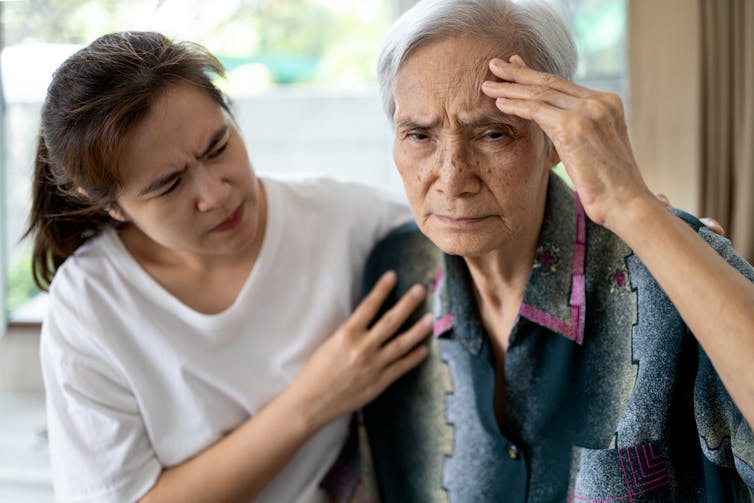
CGN089/Shutterstock
4. Understand the options if a parent has lost capacity to make decisions
If Mum or Dad have lost capacity to choose where they live, family may be able to make that decision in their best interests.
If it’s not clear whether a person has capacity to make a particular decision, a medical practitioner can assess for that capacity.
Mum or Dad may have appointed an enduring guardian to make decisions about their health and lifestyle decisions when they are not able to.
An enduring guardian can make the decision that the person should live in residential aged care, if the person no longer has the capacity to make that decision themselves.
If Mum or Dad didn’t appoint an enduring guardian, and have lost capacity, then a court or tribunal can appoint that person a private guardian (usually a family member, close friend or unpaid carer).
If no such person is available to act as private guardian, a public official may be appointed as public guardian.
Deal with your own feelings
Families often feel guilt and grief during the decision-making and transition process.
Families need to act in the best interest of Mum or Dad, but also balance other caring responsibilities, financial priorities and their own wellbeing.
Lee-Fay Low, Professor in Ageing and Health, University of Sydney
This article is republished from The Conversation under a Creative Commons license. Read the original article.
Don’t Forget…
Did you arrive here from our newsletter? Don’t forget to return to the email to continue learning!
Recommended
Learn to Age Gracefully
Join the 98k+ American women taking control of their health & aging with our 100% free (and fun!) daily emails:
-
You Are Not Broken – by Dr. Kelly Casperson
10almonds is reader-supported. We may, at no cost to you, receive a portion of sales if you purchase a product through a link in this article.
Many women express “I think I’m broken down there”, and it turns out simply that neither they nor their partners had the right knowledge, that’s all. The good news is: bedroom competence is an entirely learnable skill!
Dr. Casperson is a urologist, and over the years has expanded her work into all things pelvic, including the relevant use of both systemic and topical hormones (as in, hormones to increase overall blood serum levels of that hormone, like most HRT, and also, creams and lotions to increase levels of a given hormone in one particular place).
However, this is not 200 pages to say “take hormones”. Rather, she covers many areas of female sexual health and wellbeing, including yes, simply pleasure. From the physiological to the psychological, Dr. Casperson talks the reader through avoiding blame games and “getting out of your head and into your body”.
Bottom line: if you (or a loved one) are one of the many women who have doubts about being entirely correctly set up down there, then this book is definitely for you.
Click here to check out You Are Not Broken, and indeed stop “should-ing” all over your sex life!
Share This Post
-
Food for Life – by Dr. Tim Spector
10almonds is reader-supported. We may, at no cost to you, receive a portion of sales if you purchase a product through a link in this article.
This book is, as the author puts it, “an eater’s guide to food and nutrition”. Rather than telling us what to eat or not eat, he provides an overview of what the latest science has to say about various foods, and leaves us to make our own informed decisions.
He also stands firmly by the “personalized nutrition” idea that he introduced in his previous book which we reviewed the other day, and gives advice on what tests we might like to perform.
The writing style is accessible, without shying away from reference to hard science. Dr. Spector provides lots of information about key chemicals, genes, gut bacteria, and more—as well as simply providing a very enjoyable read along the way.
Bottom line: if you’d like a much better idea of what food is (and isn’t) doing what, this book is an invaluable resource.
Click here to check out Food for Life, and make the best decisions for you!
Share This Post
-
The Book of Lymph – by Lisa Levitt Gainsely
10almonds is reader-supported. We may, at no cost to you, receive a portion of sales if you purchase a product through a link in this article.
The book starts with an overview of what lymph is and why it matters, before getting into the main meat of the book, which is lymphatic massage techniques to improve lymphatic flow/drainage throughout different parts of the body, and in the context of an assortment of common maladies that may merit particular attention.
There’s an element of aesthetic medicine here, and improving beauty, but there’s also a whole section devoted to such things as breast care and the like (bearing in mind, the lymphatic system is one of our main defenses against cancer). There’s also a lot about managing lymph in the context of chronic health conditions.
The style is light pop-science; the science is explained clearly throughout, but without academic citations every few lines as some books might have. The author is, after all, a practitioner (CLT) and/but not an academic.
Bottom line: if you’d like to improve your lymphatic health, whether for beauty or health maintenance or recovery, this book will walk you through it.
Click here to check out The Book of Lymph, and give yours some love!
Share This Post
Related Posts
-
Thinking about trying physiotherapy for endometriosis pain? Here’s what to expect
10almonds is reader-supported. We may, at no cost to you, receive a portion of sales if you purchase a product through a link in this article.
Endometriosis is a condition that affects women and girls. It occurs when tissue similar to the lining of the uterus ends up in other areas of the body. These areas include the ovaries, bladder, bowel and digestive tract.
Endometriosis will affect nearly one million Australian women and girls in their lifetime. Many high-profile Australians are affected by endometriosis including Bindi Irwin, Sophie Monk and former Yellow Wiggle, Emma Watkins.
Symptoms of endometriosis include intense pelvic, abdominal or low back pain (that is often worse during menstruation), bladder and bowel problems, pain during sex and infertility.
But women and girls wait an average of seven years to receive a diagnosis. Many are living with the burden of endometriosis and not receiving treatments that could improve their quality of life. This includes physiotherapy.
Netpixi/Shutterstock How is endometriosis treated?
No treatments cure endometriosis. Symptoms can be reduced by taking medications such as non-steriodal anti-inflammatories (ibuprofen, aspirin or naproxen) and hormonal medicines.
Surgery is sometimes used to diagnose endometriosis, remove endometrial lesions, reduce pain and improve fertility. But these lesions can grow back.
Whether they take medication or have surgery, many women and girls continue to experience pain and other symptoms.
Pelvic health physiotherapy is often recommended as a non-drug management technique to manage endometriosis pain, in consultation with a gynaecologist or general practitioner.
The goal of physiotherapy treatment depends on the symptoms but is usually to reduce and manage pain, improve ability to do activities, and ultimately improve quality of life.
What could you expect from your first appointment?
Physiotherapy management can differ based on the severity and location of symptoms. Prior to physical tests and treatments, your physiotherapist will comprehensively explain what is going to happen and seek your permission.
They will ask questions to better understand your case and specific needs. These will include your age, weight, height as well as the presence, location and intensity of symptoms.
You will also be asked about the history of your period pain, your first period, the length of your menstrual cycle, urinary and bowel symptoms, sexual function and details of any previous treatments and tests.
They may also assess your posture and movement to see how your muscles have changed because of the related symptoms.
During the consultation, your physio will assess you for painful areas and muscle tightness. Netpixi/Shutterstock They will press on your lower back and pelvic muscles to spot painful areas (trigger points) and muscle tightness.
If you consent to a vaginal examination, the physiotherapist will use one to two gloved fingers to assess the area inside and around your vagina. They will also test your ability to coordinate, contract and relax your pelvic muscles.
What type of treatments could you receive?
Depending on your symptoms, your physiotherapist may use the following treatments:
General education
Your physiotherapist will give your details about the disease, pelvic floor anatomy, the types of treatment and how these can improve pain and other symptoms. They might teach you about the changes to the brain and nerves as a result of being in long-term pain.
They will provide guidance to improve your ability to perform daily activities, including getting quality sleep.
If you experience pain during sex or difficulty using tampons, they may teach you how to use vaginal dilators to improve flexibility of those muscles.
Pelvic muscle exercises
Pelvic muscles often contract too hard as a result of pain. Pelvic floor exercises will help you contract and relax muscles appropriately and provide an awareness of how hard muscles are contracting.
This can be combined with machines that monitor muscle activity or vaginal pressure to provide detailed information on how the muscles are working.
Yoga, stretching and low-impact exercises
Yoga, stretching and low impact aerobic exercise can improve fitness, flexibility, pain and blood circulation. These have general pain-relieving properties and can be a great way to contract and relax bigger muscles affected by long-term endometriosis.
These exercises can help you regain function and control with a gradual progression to perform daily activities with reduced pain.
Low-impact exercise can reduce pain. ABO Photography/Shutterstock Hydrotherapy (physiotherapy in warm water)
Performing exercises in water improves blood circulation and muscle relaxation due to the pressure and warmth of the water. Hydrotherapy allows you to perform aerobic exercise with low impact, which will reduce pain while exercising.
However, while hydrotherapy shows positive results clinically, scientific studies to show its effectiveness studies are ongoing.
Manual therapy
Women frequently have small areas of muscle that are tight and painful (trigger points) inside and outside the vagina. Pain can be temporarily reduced by pressing, massaging or putting heat on the muscles.
Physiotherapists can teach patients how to do these techniques by themselves at home.
What does the evidence say?
Overall, patients report positive experiences pelvic health physiotherapists treatments. In a study of 42 women, 80% of those who received manual therapy had “much improved pain”.
In studies investigating yoga, one study showed pain was reduced in 28 patients by an average of 30 points on a 100-point pain scale. Another study showed yoga was beneficial for pain in all 15 patients.
But while some studies show this treatment is effective, a review concluded more studies were needed and the use of physiotherapy was “underestimated and underpublicised”.
What else do you need to know?
If you have or suspect you have endometriosis, consult your gynaecologist or GP. They may be able to suggest a pelvic health physiotherapist to help you manage your symptoms and improve quality of life.
As endometriosis is a chronic condition you may be entitled to five subsidised or free sessions per calendar year in clinics that accept Medicare.
If you go to a private pelvic health physiotherapist, you won’t need a referral from a gynaecologist or GP. Physiotherapy rebates can be available to those with private health insurance.
The Australian Physiotherapy Association has a Find a Physio section where you can search for women’s and pelvic physiotherapists. Endometriosis Australia also provides assistance and advice to women with Endometriosis.
Thanks to UTS Masters students Phoebe Walker and Kasey Collins, who are researching physiotherapy treatments for endometriosis, for their contribution to this article.
Peter Stubbs, Senior Lecturer in Physiotherapy, University of Technology Sydney and Caroline Wanderley Souto Ferreira, Visiting Professor of Physiotherapy, University of Technology Sydney
This article is republished from The Conversation under a Creative Commons license. Read the original article.
Don’t Forget…
Did you arrive here from our newsletter? Don’t forget to return to the email to continue learning!
Learn to Age Gracefully
Join the 98k+ American women taking control of their health & aging with our 100% free (and fun!) daily emails:
-
Kumquat vs Persimmon – Which is Healthier?
10almonds is reader-supported. We may, at no cost to you, receive a portion of sales if you purchase a product through a link in this article.
Our Verdict
When comparing kumquat to persimmon, we picked the kumquat.
Why?
In terms of macros, kumquats have more protein, though like most fruits, it’s unlike anybody’s eating them for the protein content. More importantly, they have a lot more fiber, for less than half the carbs. It bears mentioning though that (again, like most fruits) persimmon isn’t bad for this either, and both fruits are low glycemic index foods.
When it comes to vitamins, it’s not close: kumquats have more of vitamins A, B1, B2, B3, B5, B6, B9, E, and choline, while persimmon has more vitamin C. It’s worth noting that kumquats are already a very good source of vitamin C though; persimmon just has more.
In the category of minerals, kumquats again lead with more calcium, copper, magnesium, manganese, and zinc, while persimmon has more iron, phosphorus, and potassium.
In short, enjoy both, and/or whatever fruit you enjoy the most, but if looking for nutritional density, kumquats are bringing it.
Want to learn more?
You might like to read:
Why You’re Probably Not Getting Enough Fiber (And How To Fix It)
Take care!
Don’t Forget…
Did you arrive here from our newsletter? Don’t forget to return to the email to continue learning!
Learn to Age Gracefully
Join the 98k+ American women taking control of their health & aging with our 100% free (and fun!) daily emails:
-
Why the WHO has recommended switching to a healthier salt alternative
10almonds is reader-supported. We may, at no cost to you, receive a portion of sales if you purchase a product through a link in this article.
This week the World Health Organization (WHO) released new guidelines recommending people switch the regular salt they use at home for substitutes containing less sodium.
But what exactly are these salt alternatives? And why is the WHO recommending this? Let’s take a look.
goodbishop/Shutterstock A new solution to an old problem
Advice to eat less salt (sodium chloride) is not new. It has been part of international and Australian guidelines for decades. This is because evidence clearly shows the sodium in salt can harm our health when we eat too much of it.
Excess sodium increases the risk of high blood pressure, which affects millions of Australians (around one in three adults). High blood pressure (hypertension) in turn increases the risk of heart disease, stroke and kidney disease, among other conditions.
The WHO estimates 1.9 million deaths globally each year can be attributed to eating too much salt.
The WHO recommends consuming no more than 2g of sodium daily. However people eat on average more than double this, around 4.3g a day.
In 2013, WHO member states committed to reducing population sodium intake by 30% by 2025. But cutting salt intake has proved very hard. Most countries, including Australia, will not meet the WHO’s goal for reducing sodium intake by 2025. The WHO has since set the same target for 2030.
The difficulty is that eating less salt means accepting a less salty taste. It also requires changes to established ways of preparing food. This has proved too much to ask of people making food at home, and too much for the food industry.
There’s been little progress on efforts to cut sodium intake. snezhana k/Shutterstock Enter potassium-enriched salt
The main lower-sodium salt substitute is called potassium-enriched salt. This is salt where some of the sodium chloride has been replaced with potassium chloride.
Potassium is an essential mineral, playing a key role in all the body’s functions. The high potassium content of fresh fruit and vegetables is one of the main reasons they’re so good for you. While people are eating more sodium than they should, many don’t get enough potassium.
The WHO recommends a daily potassium intake of 3.5g, but on the whole, people in most countries consume significantly less than this.
Potassium-enriched salt benefits our health by cutting the amount of sodium we consume, and increasing the amount of potassium in our diets. Both help to lower blood pressure.
Switching regular salt for potassium-enriched salt has been shown to reduce the risk of heart disease, stroke and premature death in large trials around the world.
Modelling studies have projected that population-wide switches to potassium-enriched salt use would prevent hundreds of thousands of deaths from cardiovascular disease (such as heart attack and stroke) each year in China and India alone.
The key advantage of switching rather than cutting salt intake is that potassium-enriched salt can be used as a direct one-for-one swap for regular salt. It looks the same, works for seasoning and in recipes, and most people don’t notice any important difference in taste.
In the largest trial of potassium-enriched salt to date, more than 90% of people were still using the product after five years.
Excess sodium intake increases the risk of high blood pressure, which can cause a range of health problems. PeopleImages.com – Yuri A/Shutterstock Making the switch: some challenges
If fully implemented, this could be one of the most consequential pieces of advice the WHO has ever provided.
Millions of strokes and heart attacks could be prevented worldwide each year with a simple switch to the way we prepare foods. But there are some obstacles to overcome before we get to this point.
First, it will be important to balance the benefits and the risks. For example, people with advanced kidney disease don’t handle potassium well and so these products are not suitable for them. This is only a small proportion of the population, but we need to ensure potassium-enriched salt products are labelled with appropriate warnings.
A key challenge will be making potassium-enriched salt more affordable and accessible. Potassium chloride is more expensive to produce than sodium chloride, and at present, potassium-enriched salt is mostly sold as a niche health product at a premium price.
If you’re looking for it, salt substitutes may also be called low-sodium salt, potassium salt, heart salt, mineral salt, or sodium-reduced salt.
A review published in 2021 found low sodium salts were marketed in only 47 countries, mostly high-income ones. Prices ranged from the same as regular salt to almost 15 times higher.
An expanded supply chain that produces much more food-grade potassium chloride will be needed to enable wider availability of the product. And we’ll need to see potassium-enriched salt on the shelves next to regular salt so it’s easy for people to find.
In countries like Australia, about 80% of the salt we eat comes from processed foods. The WHO guideline falls short by not explicitly prioritising a switch for the salt used in food manufacturing.
Stakeholders working with government to encourage food industry uptake will be essential for maximising the health benefits.
Xiaoyue (Luna) Xu, Scientia Lecturer, School of Population Health, UNSW Sydney and Bruce Neal, Executive Director, George Institute Australia, George Institute for Global Health
This article is republished from The Conversation under a Creative Commons license. Read the original article.
Don’t Forget…
Did you arrive here from our newsletter? Don’t forget to return to the email to continue learning!
Learn to Age Gracefully
Join the 98k+ American women taking control of their health & aging with our 100% free (and fun!) daily emails:


